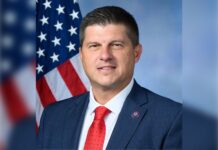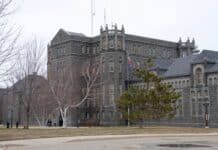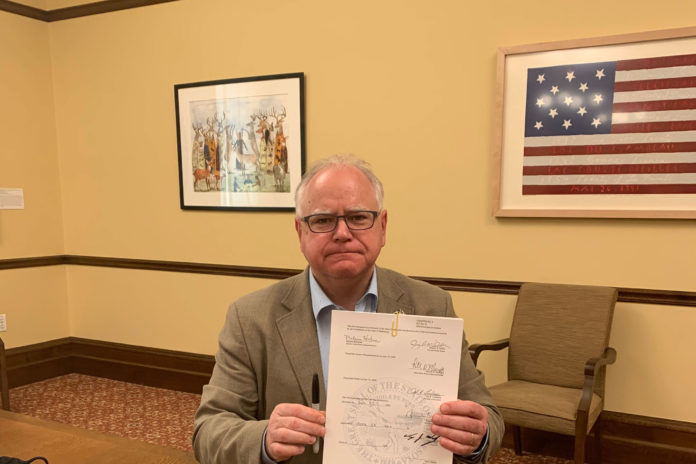Two legal activism organizations have filed lawsuits against Minnesota Gov. Tim Walz’s restrictions on church attendance. The Upper Midwest Law Center has filed a case in Minnesota state court, and the Thomas More Society, a religious liberty group named after a Catholic saint, has filed a federal lawsuit. At issue is Walz’s COVID-19 executive orders (EOs), which the Thomas More Society says amount to the “criminalization of religious worship.”
The plaintiffs in the federal suit are asking the court to strike down Walz’s limitations on church attendance, and the requirement that the limited number of allowed attendees adhere to “6-foot social distancing” and the wearing of face masks.
The federal suit asks the federal district court to declare Walz’s EOs for churches unconstitutional, on the basis of the First Amendment, which guarantees religious liberty, and the Fourteenth Amendment, which applies the First Amendment to the states. The suit also seeks to challenge Walz’s authority under the Minnesota State Constitution to act without the State Legislature.
The suit in state court by the Upper Midwest Law Center seeks to focus on the alleged conflict between Minnesota law prohibiting the concealment of one’s identity with a mask, and the governor’s mask mandate. This suit also seeks to have the court rule that the governor has overstepped his legal authority and taken power away from the Legislature.
Similar cases in New York and California
Similar suits in New York and California have led to judges siding with religious attendees. In New York, the authorities seemed intent to crack down on outdoor Orthodox Jewish congregants, even as they allowed or encouraged mass gatherings to protest police. In late June, a federal judge issued a preliminary injunction in favor of the Orthodox Jewish and Christian plaintiffs.
More recently in California, a large church led by John MacArthur has been allowed to meet by a judge as long as it complies with social distancing and mask-wearing requirements. The full hearing will occur on September 4, 2020.
Anti-faith bias?
Striking in all these cases is that state authorities refused to carve out exemptions for religious activity, and even seemed to target religious activity with specifically-onerous restrictions.
In fact, to many observers, it seems as if Walz has singled out religious gatherings for stricter social distancing rules.
When the COVID-19 pandemic was still near a high point in Minnesota, Walz allowed a candy store to re-open at a maximum capacity of 200 people. This appears to have occurred because of a personal connection between the store’s owner and Walz. Passersby routinely see the store’s large parking lot packed with vehicles.
But Walz’s orders have disproportionately hurt small businesses in general, and potentially aided major retail corporations.
During the peak of the virus in Minnesota, Walz shut down surgeries, even those that would greatly impact a person’s quality of life, while still explicitly allowing abortion clinics to remain open.
More recently, Walz and Democratic Attorney General Keith Ellison went after an outdoor rodeo for defying COVID-19 restrictions, even as the governor and the attorney general encouraged outdoor protests where persons were much less socially-distanced, and gathered in much greater numbers than were at the rodeo.
All this has occurred while the state has pursued what critics call an insane policy, where COVID-19 patients were placed in long-term care facilities due to pressure from the hospital lobby, which has led to outsized COVID-19 deaths among the elderly in Minnesota.
In other words, it appears as if Walz may be using the COVID-19 EOs to favor his political allies, and punish political opponents.





